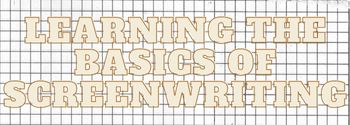Animal Farm by George Orwell was published in England, on August 17, 1945. The book was initially viewed as a simple recreation of events that led up to the Russian Revolution which ended the Stalin era. George Orwell, who was an outspoken critic of Joseph Stalin’s actions, was the main reason for this book being viewed as a satire. This book highlights a few themes; one of which is the comparison between capitalist and socialist societies.
The opening scene takes place on a farm. All the animals gather to hear Old Major speak at night. The speech was mainly focused on the mistreatment and poor conditions of the animals, as well as the owner’s farm.
The plan included a series of actions that were similar to a revolution, with the goal of “overthrowing” Mr. Jones. It would allow all animals to work together in harmony towards a shared goal. This would create a more efficient and effective system because the labor would all be equally distributed. The socialism of this system was evident, as the entire community would control all exchange methods.
To guarantee everyone’s rights, a set of rules was established. The farm had an economy that was similar to the Soviet Union. Food would be distributed equally amongst the entire populace, just as in a Marxist system. The pigs, who were Joseph Stalin and Leon Trotsky respectively, managed to take advantage of these rules, demonstrating that the socialist society which they tried embodying was not in order.
Napoleon, standing in front the buckets of milk, said: “Nevermind the milk, comrades!” The buckets will be emptied. It is important to focus on the harvest.
The communist economic system soon became dysfunctional. When the pigs decided they were smarter than other animals, they began to control them. They exempted themselves physically from the farm work, believing they brought the “brains”. It was a misinterpretation of what a need is. Other animals, unaware of the manipulation technique, were forced to obey the orders of the pigs. This was to personify political greed at the moment.
The pigs eventually abused the power they had, eating all apples and all milk. They justified their actions by claiming it was necessary to do the work they were doing for the local community. The animals were also led to believe Mr. Jones will return and that they could not enjoy such privileges. The pigs used propaganda and rhetoric to control everyone, along with manipulating them. It was at this point that the commandment, “All Animals are Equal”, was changed to: “All Animals are Equal, but Some Animals are More Equality Than Others”. Orwell was clearly against capitalism.
The book shows capitalism as a series actions based on greed and power. It starts with the animals wanting to throw Mr. Jones from the barn because he wasn’t treating them right. He also used their produce to his advantage. The pigs began to mimic Mr. Jones, even though at first it did not appear that way. The farm ended up worse off than before. It was this way that the pigs could live in luxury, and receive no benefit from their labor. The pigs then sold Boxer’s corpse and spent the money on alcohol to get drunk. This again violated a commandment.
George Orwell criticizes socialism as well as capitalism in a way that is remarkably honest. He focuses on both the positive and negative aspects of each system. Orwell showed that man’s greed, regardless of who was in a power position or felt superior, will corrupt them and use their power against those less fortunate.
Towards end of the book, a pig named Napoleon is made the dictator. Thus, a more socialist society develops. All animals start out as equals. As pigs acquire knowledge they begin to become superiors. They then adopt a system of communism, in which they take on the role of humans, while the other animals serve under them. This was accentuated by pigs creating rituals like marching and singing to promote group unity, eliminate individuality, and instill loyalty.
Old Major had a lot of ideas that he wanted to implement before he died, but they were not implemented. There was also no equality among the animals. It is possible that this could be a mirror of what happened in the Soviet Union. In both cases, the states wanted to provide their people with more food in addition to more leisure time, free from the oppression brought on by capitalism. It was soon deemed a failure, with people being poorer, more hungry and oppressed.
These themes are a commentary about the human tendency to create social classes. The ever-changing interpretations of unity are a perfect example. Initially, animals worked together to fight a common foe, a human. But once this aspect is removed, they turn against one another and naturally divide intellectually and physically, resulting in social classes. Orwell has never claimed that he is not a proponent of a socialistic economy. However, he feels the Soviet Union does not live up to its ideals. Thus, the pigs justifying their abuse of power is an example of hypocrisy.

